Liver failure during pregnancy is also known as acute fatty liver of pregnancy. It is rare but a serious condition that occurs mostly during the third trimester. As a result, there is abnormal liver function test and hepatobiliary dysfunction.
Let’s start with the signs. How can you identify that there are issues with your liver? Look out for these signs!
What are the signs of liver failure in pregnancy?
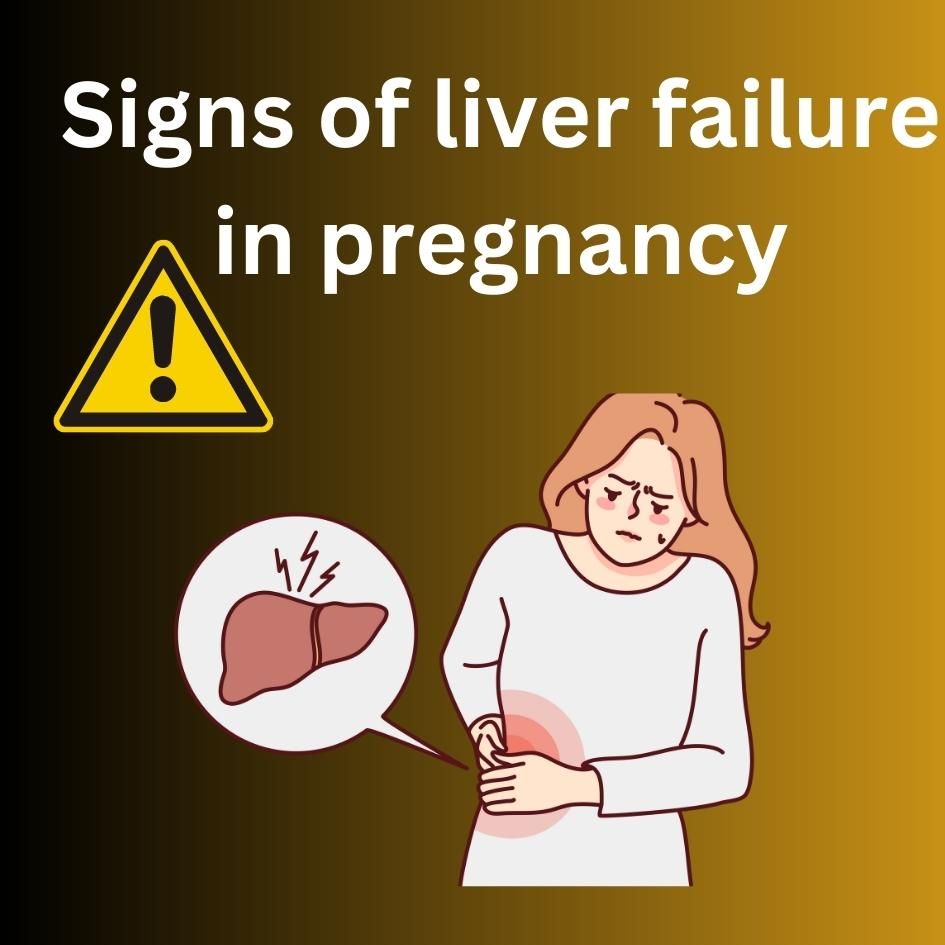
A person who is pregnant can face several liver problems during pregnancy. The signs of liver failure during pregnancy may include:
- Nausea and vomiting- Persistent and severe nausea and vomiting. These are so severe that they are not relieved by typical remedies.
- Abnormal pain- There is severe abdominal pain in the upper right part.
- Jaundice- The skin and eyes get yellow. This indicates liver dysfunction.
- Fatigue and weakness- Feeling excessively tired and weak.
- Easy bruising and bleeding- There is a tendency to get bruised easily. Once bruised there is prolonged bleeding.
- Altered mental health - Confusion, disorientation, or difficulty concentrating.
- Swelling- Edema or fluid retention- It happens in the hands or legs.
If you are experiencing any of these symptoms please seek immediate medical attention. Otherwise, liver failure in pregnancy can be life threatening as well.
Your health is too important to ignore – schedule your appointment now.
There are several reasons behind liver failure while pregnant! Read below to learn about them!
What causes liver failure in pregnancy?

Liver failure during pregnancy can be caused by various factors. The factors or diseases that lead to liver failure while pregnant include:
- Acute fatty liver of pregnancy- It is a rare condition caused by accumulation of fat in the liver. This leads to liver dysfunction and failure.
- Intrahepatic cholestasis of pregnancy (ICP)- It is liver disorder that happens during pregnancy. This disorder impairs the bile flow, leading to excessive levels of bile acid in the blood.
- Pre-existing liver disease- Conditions like viral hepatitis or autoimmune hepatitis can worsen during pregnancy. These can potentially lead to liver failure.
- Preeclampsia-It is a pregnancy complication which causes high blood pressure. Other effects include organ damage including liver.
- Medications and toxins- Some medications or exposure to toxins can cause liver damage. They potentially lead to liver failure during pregnancy.
- Other rare causes- Other factors like HELLP syndrome (hemolysis, elevated liver enzymes, low platelet count) or acute viral infections. They can also lead to liver failure in pregnancy.
Don’t worry! There are still chances of getting pregnant with liver failure!
Can you get pregnant with liver failure?

Liver failure in pregnancy can cause significant problems for a woman. Liver failure can have significant effects on a woman's reproductive health and fertility. Advanced stages of liver failure cause hormonal imbalances in women’s bodies. Impaired liver function affects the menstrual cycle and ovulation. This makes it difficult to conceive naturally.
However, there are still chances of a successful pregnancy if the impaired liver and its functioning have been treated well before pregnancy. In some cases, liver transplant or other interventions might be necessary before pregnancy.
Take charge of your health and your life. Contact us today!
What are the chances of liver failure In pregnancy?
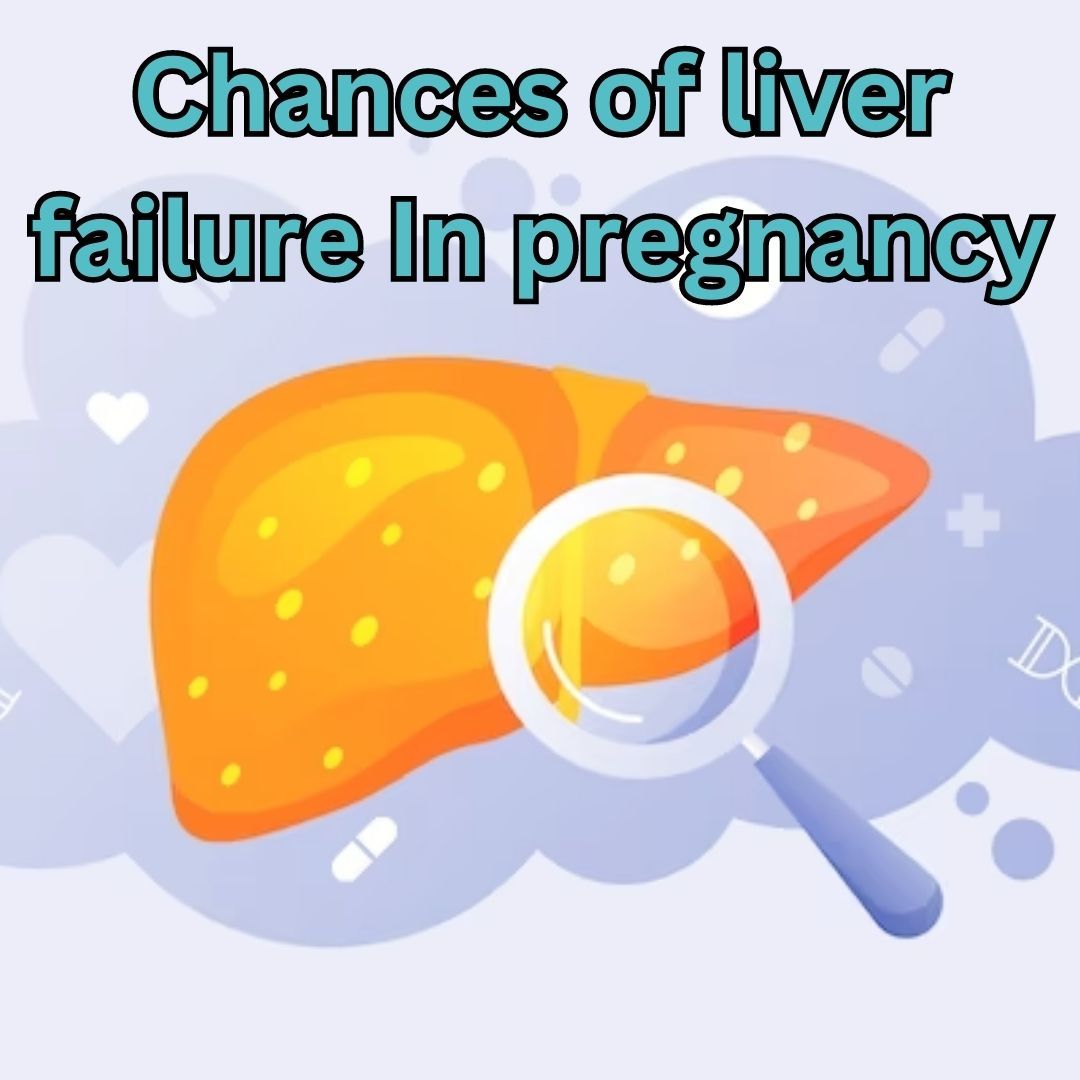
AFLP is a common condition among pregnant women. This is a life-threatening condition that leads to liver failure during pregnancy. According to a study, AFLP occurs around 1 in 7,000 to 1 in 20,000 pregnancies. This represents a rare occurrence. However, it carries significant risks. The maternal mortality rate in this range from 7% to 18%. On the other hand, the fetal mortality rate ranges from 23% to 53%.
Read on to learn about the effects of liver failure on pregnancy!
Can liver failure affect pregnancy? How does it affect you?
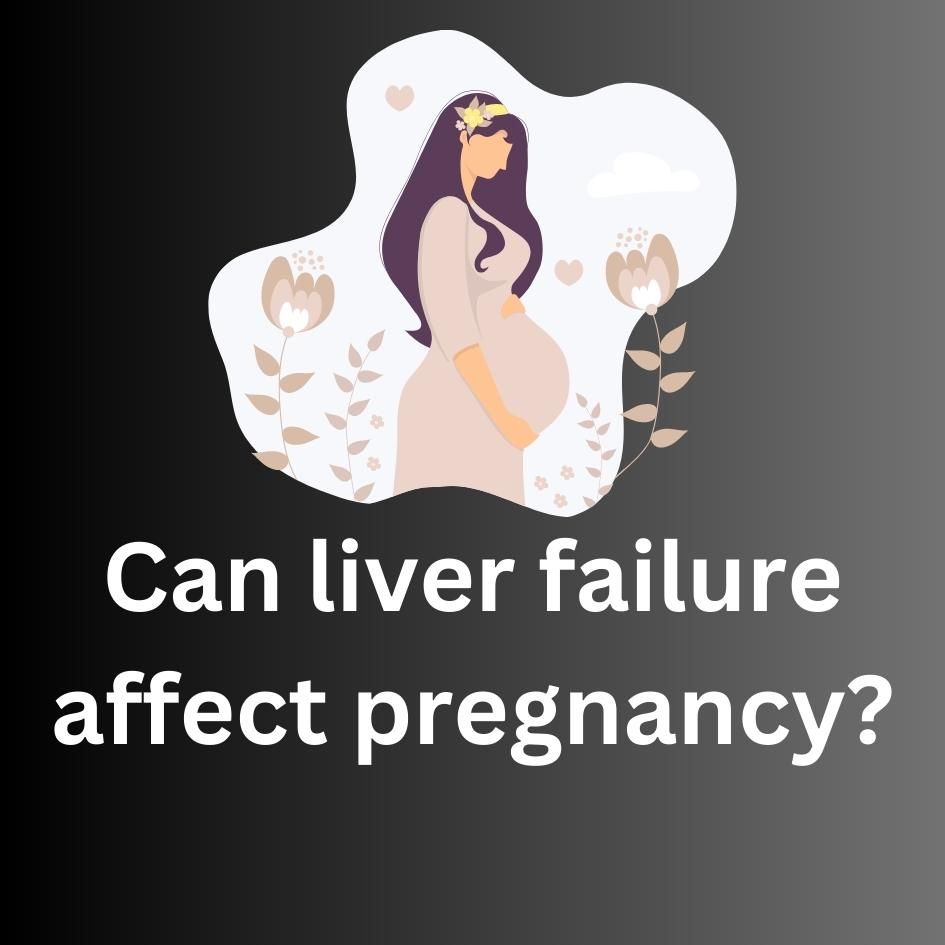
Liver failure can have significant effects on pregnancy. Liver failure in pregnancy can lead to various risks and complications. It can be life-threatening for both mother and baby. Some of the effects of liver failure during pregnancy are:
- Impaired liver function- Impaired liver function disrupts metabolic processes. It affects the health of the mother and the fetus.
- Increased risk of complications- Liver failure in pregnancy increases the risk of complications like bleeding, kidney dysfunction, and multi-organ failure.
- Reduced oxygen and nutrient supply to the fetus- It leads to growth restriction and developmental abnormalities.
- Preterm birth may be necessary to protect the mother's health. It increases the risk of neonatal complications.
- Liver failure can contribute to gestational hypertension and preeclampsia. This poses further risks to both mother and baby.
Your well-being is our priority - call us to book your appointment today
The most important thing to know about is the treatment options! Read further to find out!
How to treat liver failure in pregnancy?
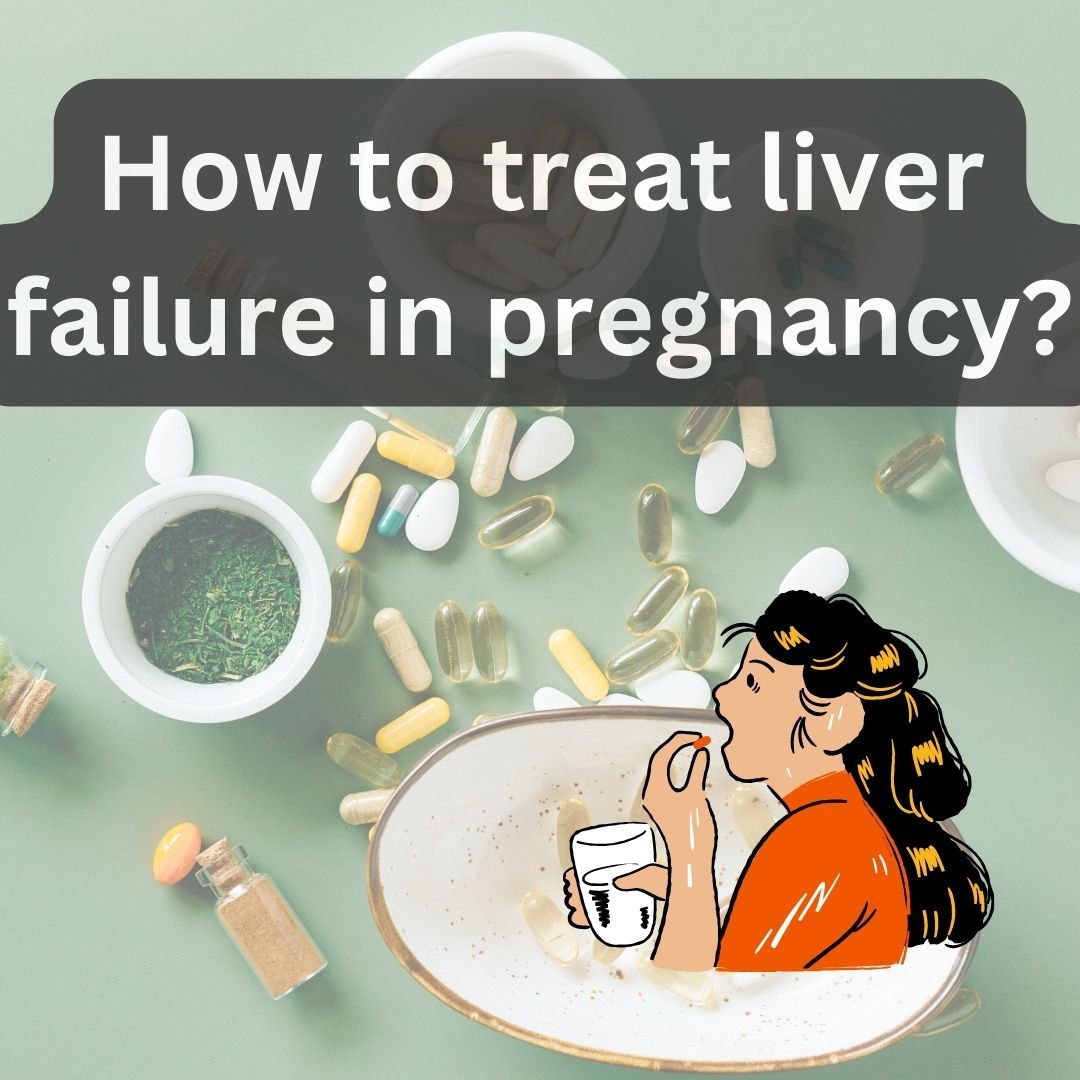
The treatment of liver failure while pregnancy depends on the underlying cause and severity of the condition. Here are some common approaches:
- Hospitalization- Women with liver failure in pregnancy should be hospitalized for close monitoring. So that they can be provided medical attention whenever needed.
- Supportive care- Treatment focuses on managing symptoms. Supportive care is provided to stabilize the mother’s condition. This may involve intravenous fluids, electrolyte balance, and nutritional support.
- Medications- Medications may be prescribed to manage specific symptoms or complications. Such as antihypertensive drugs for high blood pressure or medications to control seizures.
- Delivery of the baby- In severe cases, early delivery of the baby may be necessary.
It's important to note that the specific treatment approach will vary based on the individual case.
How to prevent liver failure in pregnancy?
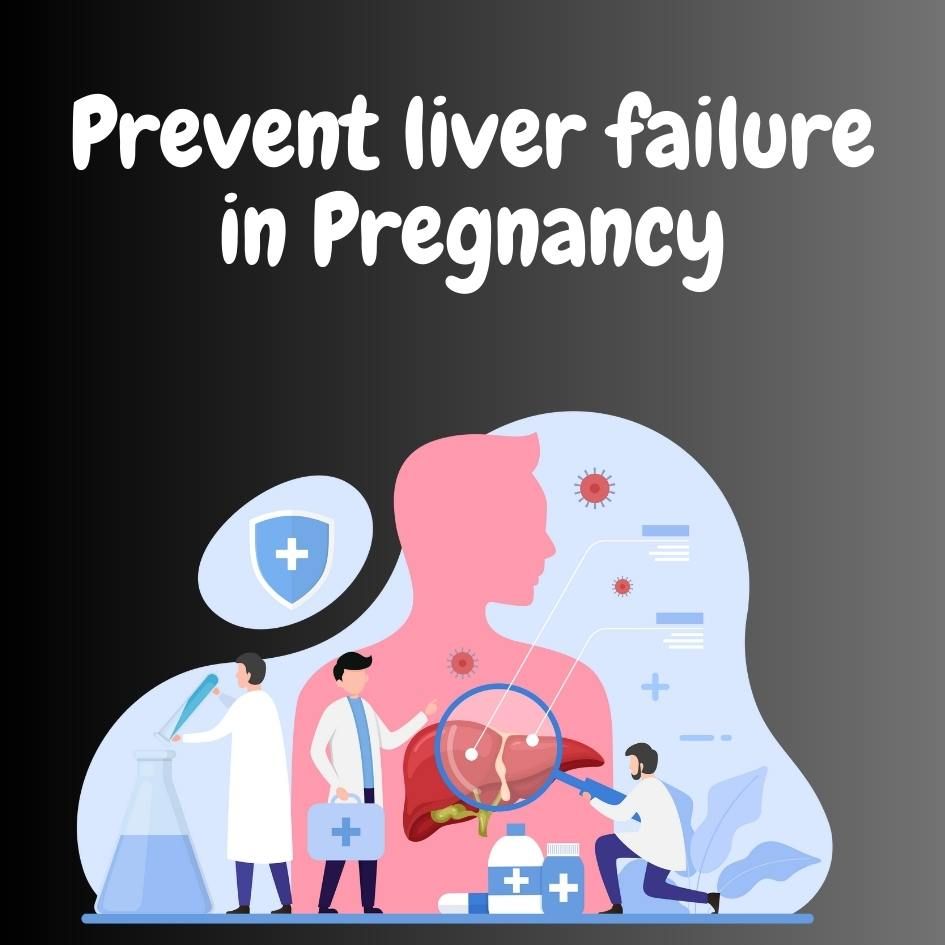
There are no specific steps that ensure the complete prevention of liver failure in pregnancy. However, these steps can be taken to minimize the risks.
- Regular prenatal care- Attend all scheduled prenatal check-ups. Regularly monitor your health and the development of the baby. It can help detect any potential issues early on.
- Healthy lifestyle- Maintain a balanced diet, and engage in regular physical activity. Avoid alcohol and tobacco use. These lifestyle factors contribute to overall well-being and reduce the risk of complications.
- Manage underlying conditions- Discuss with your doctor to manage pre-existing causes of liver failure. Like diabetes or hypertension. Proper management of these conditions can help reduce the risk of complications and liver-related issues.
- Take prescribed medications- Follow your healthcare provider's instructions for medication management during pregnancy. Certain medications can help control underlying conditions and reduce the risk of liver complications.
- Early detection and treatment- f you experience any symptoms such as jaundice, persistent nausea, and vomiting, abdominal pain, or changes in urine or stool color.
- Seek prompt medical attention in that case for early detection and treatment.
FAQs

Q1. Are there any risk factors that make women more susceptible to liver failure during pregnancy?
Ans. Yes, some factors that may increase the risk of liver failure in pregnancy include pre-existing liver disease, multiple pregnancies, obesity, and advanced maternal age.
Q2. Can liver failure in pregnancy be detected early?
Ans. Yes, regular prenatal care and monitoring can help detect potential complications early, allowing for timely intervention and treatment.
Q3. How does liver failure in pregnancy affect the baby's health?
Ans. Liver failure in pregnancy can affect the baby's health by reducing blood flow and oxygen supply to the placenta, which can lead to growth restriction and premature birth.
Q4. Can liver failure in pregnancy lead to long-term liver damage?
Ans. In some cases, liver failure in pregnancy can lead to long-term liver damage and chronic liver disease.
Q5. Is liver transplantation a viable option for treating liver failure in pregnancy?
Ans. In severe cases where other treatments have failed, liver transplantation may be considered as a last resort, but it carries its own risks and limitations.
Q6. Are there any lifestyle changes that pregnant women can make to reduce the risk of liver failure?
Ans. Maintaining a healthy diet, getting regular exercise, and avoiding alcohol and drugs can help reduce the risk of liver failure in pregnancy.
Q7. Can liver failure in pregnancy occur in women with no prior history of liver problems?
Ans. Yes, liver failure in pregnancy can occur in women with no prior history of liver disease or complications.
Q8. What is the recovery process like for women who have experienced liver failure during pregnancy?
Ans. The recovery process varies depending on the severity of the condition and any complications that may have arisen. Women may require ongoing medical treatment and monitoring to ensure a full recovery.
Reference





